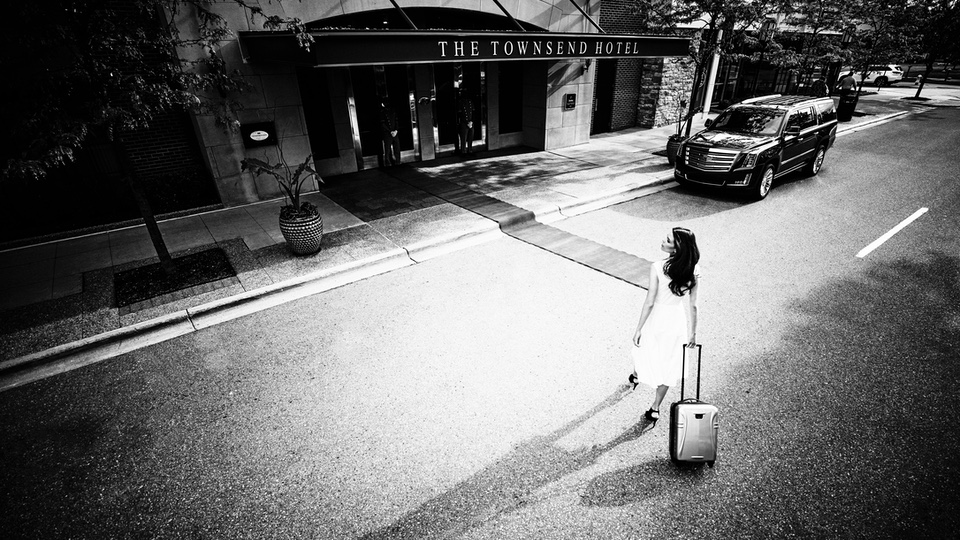Show Off Your Hotel’s Unique Personality With a Vanity Website

What first impression does your hotel website give off when a businessperson goes looking for a place to book their conference or meeting or when a bride begins her wedding planning? Does it follow the same cookie-cutter model, design and layout, or does it truly show off your property’s unique personality and amenities?
In recent years, hotel brands have increasingly simplified their websites and, in turn, lost much of the personality. Instead of standing out, the shift has made many hotels look alike. To showcase their hotel’s personality, many hotels are now turning to vanity websites, which leads to a number of crucial benefits for hospitality marketing:
- Hotel properties can differentiate their hotel from others in the market and show off amenities with better visual, including vivid photography and video
- Flexible content allows properties to target niche keywords, expanding Search Engine Optimization (SEO) and improving search engine rankings
- An improved user-experience, combined with third-party integrations for interactive floor plans and restaurant and room reservations improves conversion rates
- It’s easier than ever to quickly update a website and the expanded presence offers more detailed reporting on what consumers are looking for
Today, in the first part of our vanity website series, we’re going to focus why so many properties are shifting to vanity websites to differentiate themselves.
What is a vanity website?
In the hospitality world, a vanity website is any site that’s separate and outside of your brand website. There are many different use cases for a vanity website, whether to talk about your property overall, including the different aspects of your property and features and benefits of your business, or specific features and amenities. A popular use case for a vanity website is to showcase a specific area of a hotel property such as a restaurant, meetings and events areas, an on-site spa, or a wedding venue.
There are a number of benefits to a vanity website, but today we’re going to focus on the ability that a vanity website gives you to present yourself in a unique way and differentiate your property from not only your competitors—other brands and independent hotels—but even within your own brand. A vanity website can help separate you from the competition overall and demonstrate to the consumer what makes you unique and different.
The shift to simplified hotel website design
The example above is the Hilton Garden Inn in Atlanta. In general, brands in recent years have moved in a direction that strips away a lot of content and information in favor of simple pages with a more uniform and templated approach. You can see in this example that this property has only a homepage, rooms page and gallery page.
As a consumer explores the page further, they can see from the amenities section that the property has a number of great amenities, including an on-site restaurant, a pool, and meetings rooms. But because of the simplified design and content approach, there isn’t very much supplemental information about any of those things. There’s a brief dining section with one image and a pop-up below provides hours of operation, but there are no menus or the ability to make a reservation online. When it comes to meetings and events, there are some statistics and a button to request pricing. To find any more information, the customer has to hunt and look around. This doesn’t present to the end user the uniqueness this property probably has.
The uniqueness of a vanity website
In counter to the example above is the Cambria Downtown Asheville, which has taken advantage of a vanity website to stand out. You can immediately see the website is much larger visually and there are a number of pages of content that the consumer can dive into. This gives this property the ability to show off and talk about all the things that make them special and unique and all of the things they’re offering when you stay with them.
Many hotel properties use a standard Brand.com website, making them look like all of the other properties consumers have to choose from. A vanity website helps break that mold. Data shows that travelers want more information. Just look at these numbers from Google’s 2020 Travel Customer Journey, which surveyed more than 7,000 travelers from six countries:
- 47% of travelers decided not to book because of unmet needs
- 95% of travelers visit travel-related sites after booking, and 74% of travels re-research their trip after booking, leading to 8% who cancel and re-book
- The average traveler spends 13% of their time online researching trips
All of this leads to one question: What impression does your hotel property website leave? It’s clear that travelers want to see what a property has to offer. Another survey from Google showed 3 in 5 travelers who watch online video use it to narrow down their brand or destination choice. There are a number of benefits of a vanity website, but the No. 1 benefit is simply the ability to differentiate yourself and present yourself in a unique and creative way so the consumer wants to stay with you instead of your competitors.
In the next part of this series, we’ll explore how a vanity website can use photography and video to stand out when those travelers begin their search.

